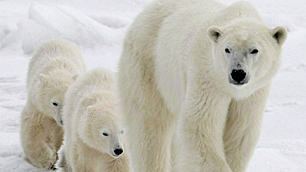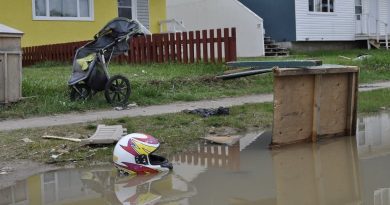Polar Bear Meeting in Nunavik to Address Growing Concerns
 Quebec government officials plan to meet with their counterparts in Nunavut and Ontario this June, in response to growing criticism about a larger than usual polar bear hunt in southern Hudson Bay.
Quebec government officials plan to meet with their counterparts in Nunavut and Ontario this June, in response to growing criticism about a larger than usual polar bear hunt in southern Hudson Bay.
Hunters from Nunavik, a mostly Inuit region in northern Quebec, have killed more than 60 polar bears in the southern Hudson Bay area since the beginning of this year, due in part to high prices being offered for polar bear hides.
That has environment officials in Nunavut and Ontario, which shares the southern Hudson Bay polar bear population with Quebec, worried that the Nunavik hunt is not sustainable.
Rhéaume Courtois, an official with Quebec’s natural resources ministry, told CBC News that the province is taking those concerns very seriously.
Courtois said his ministry plans to contact Nunavut and Ontario to get precise information about polar bear hunts in their jurisdictions.
The ministry is planning to hold a meeting in Quebec City, sometime near the end of June, to bring together government officials, hunters and biologists from Quebec, Nunavut and Ontario to discuss polar bear management solutions.
“Hopefully during that process we can, combined, reach an understanding of the state of the population, its current status, and what a fair and equitable allocation of a sustainable harvest would be from that population,” said Martyn Obbard, an Ontario government research scientist who chairs the Polar Bear Technical Committee.
Obbard said the Quebec meeting could ensure all parties are on the same page when it comes to polar bear conservation — something he said Nunavut has been demanding for years.
On average, aboriginal hunters in the James Bay area hunt fewer than 10 polar bears a year, Obbard said, but added that reporting is only mandatory if the someone wants to sell the hides.
Obbard said it could be a long process to work out a shared polar bear management agreement in southern Hudson Bay, depending on what attitudes each party brings to the table.



